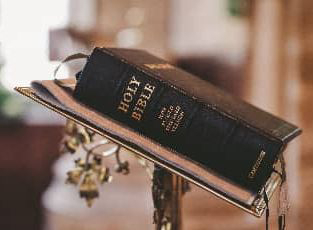How does Psalm 110 exalt Jesus Christ?
Today Bible Study:
How does Psalm 110 exalt Jesus Christ?
This psalm contains one of the most exalted prophetic portions of Scripture presenting Jesus Christ as both a holy king and a royal high priest—something that no human monarch of Israel ever experienced. It, along with Psalm 118, is by far the most quoted psalm in the New Testament (Matt. 22:44; 26:64; Mark 12:36; 14:62; Luke 20:42, 43; 22:69; Acts 2:34, 35; Heb. 1:13; 5:6; 7:17, 21; 10:13). While portraying the perfect king, the perfect high priest, and the perfect government, Psalm 110 declares Christ’s current role in heaven as the resurrected Savior (110:1) and His future role on earth as the reigning Monarch (110:2–7). This psalm is decidedly messianic and millennial in content. Jesus Christ (Matt. 22:43, 44) verifies the Davidic authorship.
“The LORD said to my Lord” (v. 1). Refers to the divine/human King of Israel—the Lord Jesus Christ. Christ’s humanity descended from David, which is demanded by the Davidic promise of 2 Samuel 7:12. Using this passage, Christ also declared His deity in the Gospels (Matt. 22:44; Mark 12:36; Luke 20:42–43) by arguing that only God could have been lord to King David. “My right hand.” God the Father invited God the Son in His ascension to sit at the place of honor in the heavenly throne room (Acts. 2:22–36; Heb. 10:10–12). “Your enemies Your footstool.” Footstool was an ancient Near Eastern picture of absolute victory portraying the idea that one’s enemy was now underfoot (Pss. 8:6, 7; 47:3; Is. 66:1; 1 Cor. 15:27).
“You are a priest” (v. 4).The first time in the history of Israel when a king simultaneously served as high priest. Christ (a.k.a. “Branch,” Is. 4:2; Jer. 23:5, 6; Zech. 3:8; 6:12, 13) will build the temple at which the world will worship God (2 Sam. 7:13; Is. 2:2–4; Ezek. 40–48). “Forever.” Christ represents the final and foremost high priest in the history of Israel. “The order of Melchizedek.” This high priest could not be of Aaron’s lineage in that he would not be eternal, not be of Judah, not be a king, and not be of the New Covenant (Jer. 31:31–33; Heb. 8,9). Melchizedek, which means “king of righteousness,” served as the human priest/king of Salem in Genesis 14:17–20 and provides a picture of the order of Christ’s priesthood (Heb. 5:6; 7:17, 21).



Comments
Post a Comment